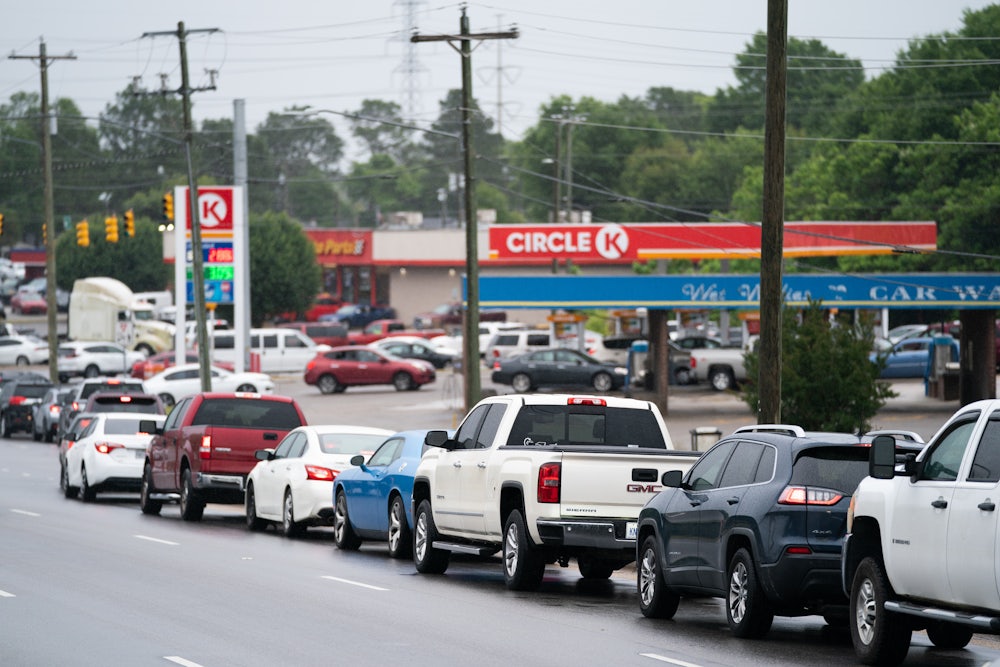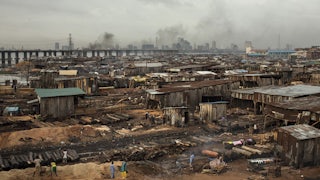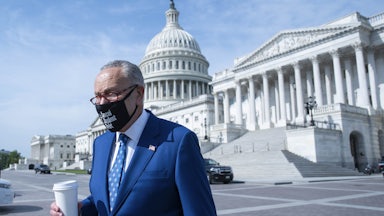As you may well have heard by now, the Colonial Pipeline—a 5,500-mile system that provides the East Coast with nearly half of its gas supply—shut down last Friday after a ransomware attack by a group of European hackers. In the six days since the hack, the hackers have apologized for any inconvenience they’ve caused, Colonial has likely thanked its lucky stars that a new P.R. crisis has overshadowed its massive North Carolina gas spill, and people up and down the East Coast have more or less lost their damn minds.
It’s difficult to overstate just how out of hand the situation has become at gas stations throughout, and even beyond, Colonial’s service region. North Carolina led the field as of Thursday morning, with 71 percent of its gas stations marked as out of fuel, thanks to a rash of panic buying at the news. Even in central Florida, an area that doesn’t pull from the pipeline, gas stations were reporting that the mass onslaught of fuel-crazed customers had tapped their supplies, as well. The defining moment of the short-term craze, though, came in the form of a simple seven-word tweet from the U.S. Consumer Product Safety Commission: “Do not fill plastic bags with gasoline.”
Having spent the past pandemic-addled year living through various phases of Americans rushing out to grocery and convenience stores to buy up all the Clorox wipes, masks, and toilet paper, this reactionary response to last week’s shutdown news was to be expected. Community-based thinking, it would seem, is not particularly this country’s strong suit, and so any time something might run out, even if only for a second, the mentality eagerly adopted by too many folks is to rush out immediately to ensure that they personally do not feel the shortfall—thereby guaranteeing that the product does in fact run out. In this particular case, that means insane lines and waiting times at gas stations, people spitting on and punching each other in said lines, hucksters trying to sell gas they hoarded at $16 per gallon—basically, the worst-case, entirely avoidable scenario.
There are several lessons one hopes the nation will learn from this mess. Among them: Maybe give it a couple days before filling up every receptacle in sight, seeing as the pipeline took less than a week to officially restart. Maybe wonder whether the wall-to-wall coverage of the temporary pipeline shutoff and rush to the pumps by local, regional, and national media outlets actually exacerbates these kinds of crises rather than helps solve them. And maybe—just maybe—consider that depending on a single gas-carrying pipeline system built over four decades ago to provide energy for tens of millions of people is, actually, an incredibly bad idea, not just for the people who need that gas for their combustion engine vehicles, but also for the entire planet.
At this broader level, the takeaways from the Colonial hack are the same ones as from February’s fatal winter storm in Texas—namely, the end result of the federal and state governments allowing our national energy infrastructure to rest in the hands of a few gas and oil corporations is an open invitation for environmental destruction, mass panic, and, in the worst-case scenario, the loss of life. That the Colonial Pipeline shutdown came in May, and not in the heart of winter, is very lucky. As the Associated Press reported, the company’s cybersecurity was a joke waiting to be exploited. Robert F. Smallwood, whose consulting company audited Colonial’s internal system in 2018, told the AP that, three years ago, the company’s security was so “atrocious,” that “an eighth-grader could have hacked into that system.”
This company and pipeline are responsible for some of the largest domestic gas and oil spills in American history, holding and resetting the state records throughout the Southeast. When the same pipeline burst last fall in eastern North Carolina, the company’s own outdated monitoring software had no clue that anything was amiss. In fact, it was only because two middle schoolers happened to be riding their ATVs in the area that anybody—the state, the company, or the city of Huntersville—found out that the Colonial Pipeline had spewed over one million gallons and counting of gas straight into the earth. (The two kids were recently awarded a key to the city for their heroics.)
The question that faces the country now, as it always does when such inevitable disasters strike, is “What next?”
The federal government cannot make deep-breathing exercises a requirement for anyone east of the Mississippi with a vehicle title to their name. But it can hold Colonial responsible for its part in this mess. Ransomware is a known threat, against which there are several best practice defenses, and it’s reasonable for Colonial to face fines for its weak security system, in addition to its North Carolina spill. It’s reasonable for it to have to pay restitution to businesses and individuals—truck drivers chief among them—that suffered due to its ineptitude. The federal government can also reconsider the sorts of priorities that have led it to cut the corporate tax rate—handing corporations like Colonial millions in public monies—rather than using that cash for measures (e.g., public transit, fuel efficiency) that make consumers less dependent on individual trips to the gas station. And leaders of both parties should ask themselves why they’re so dead set on clinging to pipeline infrastructure that has done nothing but repeatedly prove its ineffectiveness.
Since we’re handing out homework assignments to all involved, here’s one for the hackers: The next time the folks at DarkSide want to disrupt an outdated, unnecessarily inconvenient facet of American life that U.S. corporations and government officials love so dearly, would it be too much to ask that they take a look at some student loan databases instead?








